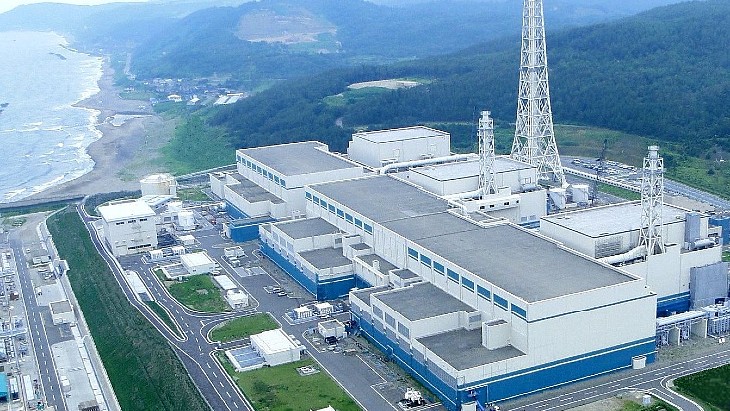RWE and EOn have both cited the country's nuclear power phaseout as a major factor behind falling incomes in their third-quarter results, with the curtailed lifespan of German plants plus the government's nuclear fuel tax costing billions of euros.
4.jpg) |
| EOn's Isar 2 faces closure in 2022 (Image: EOn) |
RWE saw two of the five nuclear reactors it operated shut down on the orders of Chancellor Angela Merkel in response to the nuclear accident at the Fukushima Daiichi plant in Japan earlier this year. Its three remaining units, at Gundremmingen and Emlsand, will all face closure by 2022 under Germany's subsequent decision to accelerate a phaseout of nuclear power. Likewise, two reactors operated by EOn were forced to shut down in March, and its four other units will close by 2022. EOn's 100%-owned Grafenrheinfeld is set to become the first of Germany's still-operating nuclear plants to close under the plan in 2015.
Despite the enforced closure of Germany's operating units, the utilities have still been required to pay a tax on nuclear fuel, introduced in 2010 as part of a deal to 'extend' the lives of nuclear power plants. While the extension was scrapped after Fukushima, the fuel tax remained, becoming the focus of a legal dispute between the operators of Germany's nuclear power plants and the government. The tax has taken effect for the first time during this reporting period and has had a negative impact of some €209 million ($284 million) on RWE's balance sheet.
Tax courts in Munich and Hamburg have expressed doubt over the legality of the tax, and have ruled that RWE does not have to pay the tax for the Gundremmingen plant for the time being. While welcoming the decision of the Munich tax court as "positive", RWE noted that it currently has no direct effect on the company's earnings. Meanwhile, the company has had to write off the value of fuel assemblies for the two Biblis reactors that it will no longer be able to use since the reactors' closure in March.
Final decisions about the legality of the tax will be made by the German Constitutional Court or the European Court of Justice. EnBW, operator of two of the still-operating units, launched legal action over the tax after paying it for refuelling the Philippsburg reactor in July.
Tightening supply
Germany's nuclear phaseout is likely to result in a tightening of the balance between supply and demand in France, especially in periods of sustained and intense cold weather, according to French transmission company RTE. In its analysis of the balance between supply and demand for the coming winter, RTE says the loss of the eight German nuclear units that have already closed are likely to limit French capacity to import power from Germany. However, on the whole the risk of disruption to French electricity supplies is classed as "moderate" and is similar to last winter.
Researched and written
by World Nuclear News





_91467.jpg)
_47120.jpg)
_16439.jpg)





